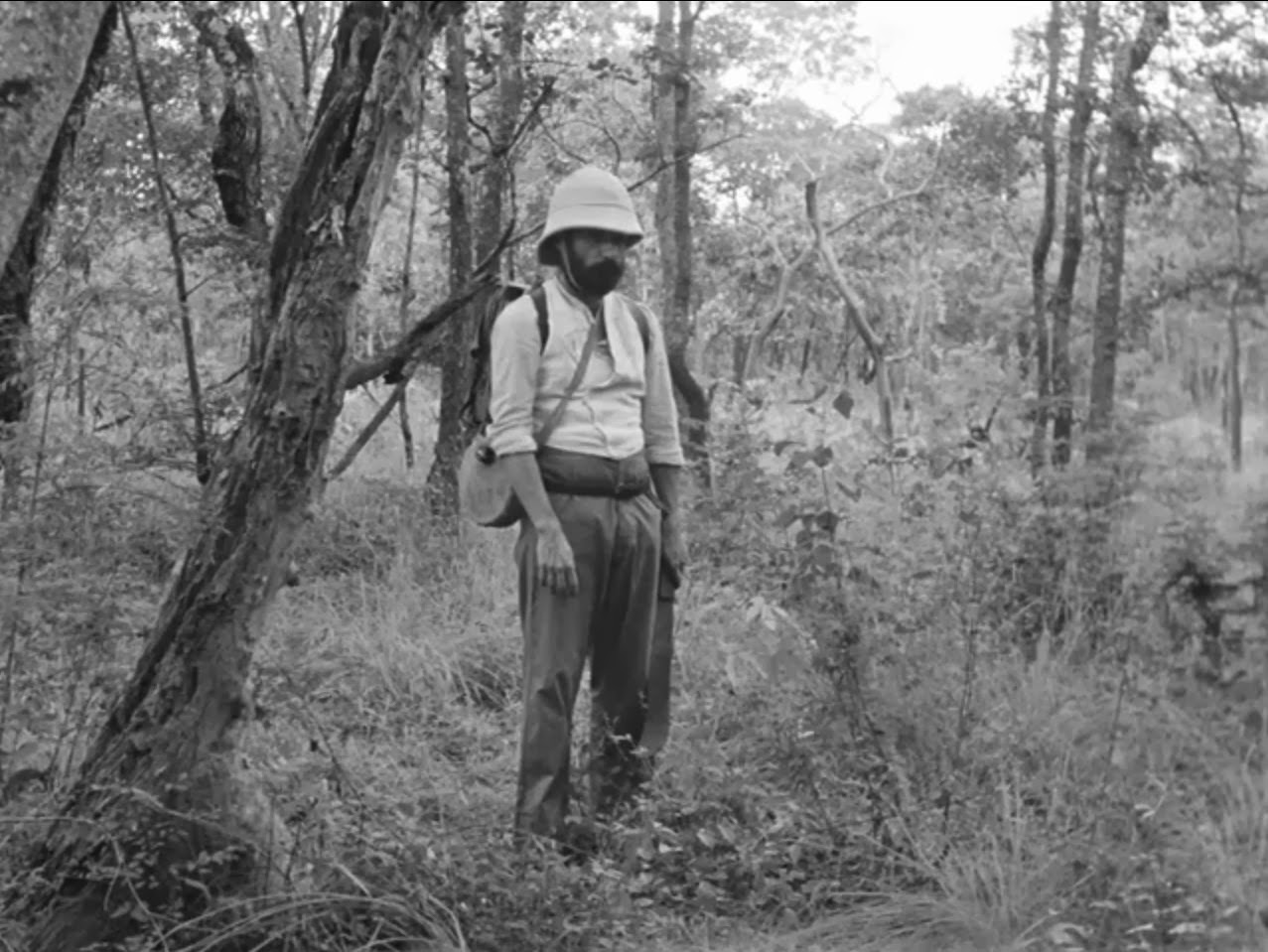Country: Portugal
Title: Tabu (2012)
Tabu opens on a pith-helmeted
Portuguese explorer in Africa whose melancholic slump caps off his rather
absurdly pathetic appearance. A narrator explains that fatalistic romantic tragedy has
spurred his expedition into the Serengeti. Observed by his native caravan, he
drops into a river and is consumed by a crocodile, which is seen accompanied by
a ghostly beauty in later years. This turns out to be a short film watched by
Pilar, a middle-aged activist in contemporary Portugal trying to get in touch
with her estranged daughter. Though she has her hobbies, her causes and an unrequited suitor-of-sort in the form of a smitten painter, Pilar’s attention
becomes focused on her neighbor, an elderly woman named Aurora.
Aurora comes
off as vain and ridiculous: she throws away the allowance granted by her
daughter (also estranged) at a casino on the basis of a strange dream,
mistreats her stoically exasperated but grimly loyal African maid Santa and
suffers from increasingly erratic and guilt-ridden paranoid delusions. Aurora
suddenly dies, but communicates a message to Santa and Pilar to contact a
mysterious man named Gian-Luca Ventura. This latter turns out to be a former
flame, who attends Aurora’s funeral before narrating the second half of the
film. He sits down with Pilar and begins by saying, "She had a farm in Africa." Here the story, not to mention the tone, shifts a second time, taking us
back to the waning months of colonial rule before Mozambique’s revolution. A
young and fiery Aurora, renowned big-game hunter and wife of a successful
tea-farmer, lives with her pet crocodile on the slopes of Mount Tabu. Her
exhilarating life climaxes in a risky affair with a young Ventura, then a dashing playboy, but ends in violence and heartbreak.
Portuguese cinema has long labored
under The School of Reis, a movement that advocated a rather academic
docufiction aesthetic that once reinvigorated the industry. It helped
established the international profile of Portugal’s best-known auteurs like
Manoel de Oliveira (104 and still making films!), Joao Cesar Monteiro (consummate
satyr and provocateur) and Pedro Costa (sincere but terminally sluggish
spelunker into urban poverty), but it quickly led to a stagnant cycle of
stilted slow cinema productions that continue to wow niche critics, while
leaving me and most viewers rather bored. And then out of nowhere comes Miguel
Gomes, a former Reis acolyte lurking in obscurity who, while not rejecting
formal rigor and stylized artifices, has managed to breathe new life into
Portugal’s art cinema and imbue it with adventure, passion, sorrow, whimsy and
structural daring.
The heart of Tabu’s story is
undoubtedly the second half (titled Paradise) but the less-loved hour-long
first half (Paradise Lost) is both a devious meditation/misdirection on
the changing role of cinematic protagonists and a critical component of Gomes’s
exploration of the tragedy of time; the transformation of Aurora from the
heart-stealing heroine of her youth into a harmlessly gauche wreck regarded
with well-meaning pity by friends, family and her last lingering servant. And it’s imperative that
we see the latter image of Aurora first, and fall into the trap of writing off
the silly old lady, before realizing the vastness of experience and emotion
that her life, and by extension all lives, contains.
Shifting attitudes are also a central
theme of Tabu on other levels, too, including race relations and the politics
of filmic representation. Colonialism is today almost solely situated somewhere
between an atrocity and an embarrassment in European films, so it makes Tabu
something of an old-fashion throwback to whole-heartedly romanticize Aurora’s
past. This is not naivety on Gomes’s part: the film’s title, a reference to a
1931 ethnographic documentary by Murnau, is just the first clue that Gomes
knows using Africa as a backdrop for exotic adventures and European romance
is problematic. It’s also not mere cynicism or satire, as the emotional sweep
of ‘Paradise’ is rendered with exquisite detail and seductive earnestness. The
actual tone is hard to put a finger on (always a good thing!), managing to draw
you into, by turns, melancholy, mystery, romance and adventure while elements
of danger, criticism and socio-political condemnation peep through, contrasted with and
heightened by our retroactive perspective.
Gomes shoots in meticulous almost
gothic black-and-white and his images alone make this film incredibly
watchable. The second half of the film, probably intentionally, makes the first
half (which is still quite well-composed) feel cramped and mundane by comparison.
Paradise is curiously told with only sound and Ventura’s hypnotic narration,
but no dialog, despite mouths moving. It's as though you were watching old home
videos, but with world-class cinematography. This ties in to the way Aurura loses
her voice both metaphorically and finally literally with age. There are other strange
parallels throughout the film, too, like the crocodile prologue, Aurora’s dream
monologue, a shopping mall jungle that foreshadows Ventura’s flashback and the
beguiling narrative dead-end of Pilar and her neighbor’s absent daughters,
perhaps implying that some secrets yet remain even after all has seemingly been
revealed.
.jpg) |
| A zoo and a nursing home waiting room from the first half of Tabu, that visually foreshadow the African settings of the second half. |
My Favorites:
Tabu (2012)
Belarmino
The Green Years (1963)
Aniki-Bobo
Major Directors:
Pedro Costa, Fernando Lopes, João César Monteiro, Manoel de Oliveira
Pedro Costa, Fernando Lopes, João César Monteiro, Manoel de Oliveira
.jpg)
.jpg)
.jpg)
.jpg)

.jpg)
.jpg)

No comments:
Post a Comment